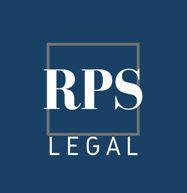The M form in the Netherlands is a document that is used for taxation matters. Its name – M form – comes from migration, since this document is required by the authorities from individuals who immigrate or emigrate from the Netherlands within one tax year, and gain profits from more than one country. Since the M form is written in Dutch and needs to be filled out by hand, our Dutch accounting firm provides help and counselling to anyone who needs to fill an M form in the Netherlands.
What information is contained in an M form in the Netherlands?
The M form is a quite big document consisting of 43 pages in which you are asked about your income, financial situation and investments in Netherlands. This is a way in which the Dutch authorities can be informed on your business activity, if you immigrated recently in this country.
The most important questions which can be found in an M form regard your identity and your economic activity in the Netherlands. You are also asked to provide information on your profits, gained in another country within the period that you were not economically active on the Dutch territory. In order to understand how much money you can obtain as refund from the tax authorities by submitting an M form, you can rely on one of our Dutch accountants who can make the precise calculations for you.
How can a foreigner obtain a Dutch M form?
As a general rule, the Dutch M form is automatically sent to a foreigner, at his or her declared address. The document can be sent at the address the person has in the Netherlands, or at his or her address in the foreign country where the person has his residency. Provided that the foreigner will modify his or her address, it is necessary to send a notification in due time concerning the new address.
However, in some cases, the M form may not automatically be sent to the person, situation in which the taxpayer needs to request it from the Tax and Customs Administration in the Netherlands. The document needs to be completed for the entire economic activity of the person developed throughout a financial year which, in the Netherlands, coincides with the calendar year.
As a general rule, the M form needs to be filed no later than 1st of the July of the next financial year and our team of Dutch accountants can offer more details on other necessary formalities, but this can depend on certain requirements. For example, in the case of foreigners who are obliged to file the M form for their activity registered in 2018, the deadline to submit the form is 1st of May 2019, but extensions of the deadline that needs to be met for a financial year are always available.
Another aspect that should be considered is that the M form is not available in an electronic format for persons who do not have a DigiD, a type of online identification number used to access different official platforms. Thus, the person can’t file this document on an online platform, nor can he or she download it from the official website of the Tax and Customs Administration.
In the situation in which it is necessary to file the form and the document was not sent by the institution to the person who does not have a DigiD, the applicant has only one option: to call at the official phone number of the institution and request the document, which will then be sent by post.
Who needs to file a Dutch M form?
The M form is generally necessary for persons who have obtained a taxable income in the Netherlands for a part of the financial year. Thus, the document will provide a part regarding the taxation of the person for the period in which he or she lived in the Netherlands, and a part concerning his or her income obtained in a foreign country.
Since the document itself is generally difficult to be completed, our accounting firm in the Netherlands can assist with tax advice on the manner in which it needs to be filed. Foreigners should complete the M form in the following cases:
- • persons working on a temporary basis in the Netherlands in various types of employment contracts;
- • persons living in two different countries (the Netherlands included) throughout a financial year;
- • persons who no longer live in the Netherlands, but are considered taxpayers in this country;
- • persons who are Dutch tax payers and who have to file the document for a deceased person;
- • the document needs to be filed by both persons who emigrated and immigrated into the Netherlands.
It is necessary to pay a close attention to the fields included in the M form, due to the two basic tax assessments – the Dutch tax system and the tax system of the other country where the person lives or lived. Provided that the person obtained income from employment in the Netherlands, he or she can obtain tax refunds.
This is given by the fact that the withholding taxes on employment are applied on a progressive system and they are calculated on the entire financial year. Our Dutch accounting firm can provide more information on the types of tax refunds that can apply in this case.
What types of tax refunds can one obtain in the Netherlands?
When completing tax returns, including the M form, the applicants can obtain various tax refunds. For example, in the case of those who purchased a property in the Netherlands in 2018, taxpayers can declare the amount of interest they pay on the property’s mortgage, a sum of money that can be deducted from the overall yearly taxes.
In the case of those having children who are enrolled in the Dutch daycare system, the local legislation stipulates that their parents can obtain a tax refund on the costs associated with the daycare services, but this depends on the yearly income of the person. Our accountants in the Netherlands can offer further information regarding this matter and it is necessary to know that certain healthcare costs can also be deductible.
What is the point of filling an M form in the Netherlands?
If you didn’t live a whole a year in the Netherlands, the M form helps you obtain a refund for those taxes which were charged from your profit for a full year. The taxes that you pay are calculated proportionally to your contribution. So if your profit in the Netherlands is less than EUR 19,981, the amount of national insurance contributions cumulated with income tax is of 36,55% compared to 52%, charged for profits bigger than EUR 67,072.
In the case of incomes obtained throughout a financial with a value between EUR 19,982 and EUR 33,790, the tax rate is of 40,8%, a tax rate which is also available for those who have obtained an income of up to EUR 67,072.
The M form helps newcomers in the Netherlands reduce their taxes within the first year of business in this country. Please feel free to contact one of our accountants in the Netherlands in order to help you fill the M form and to understand the whole utility of this document for your prosperity in this country.

